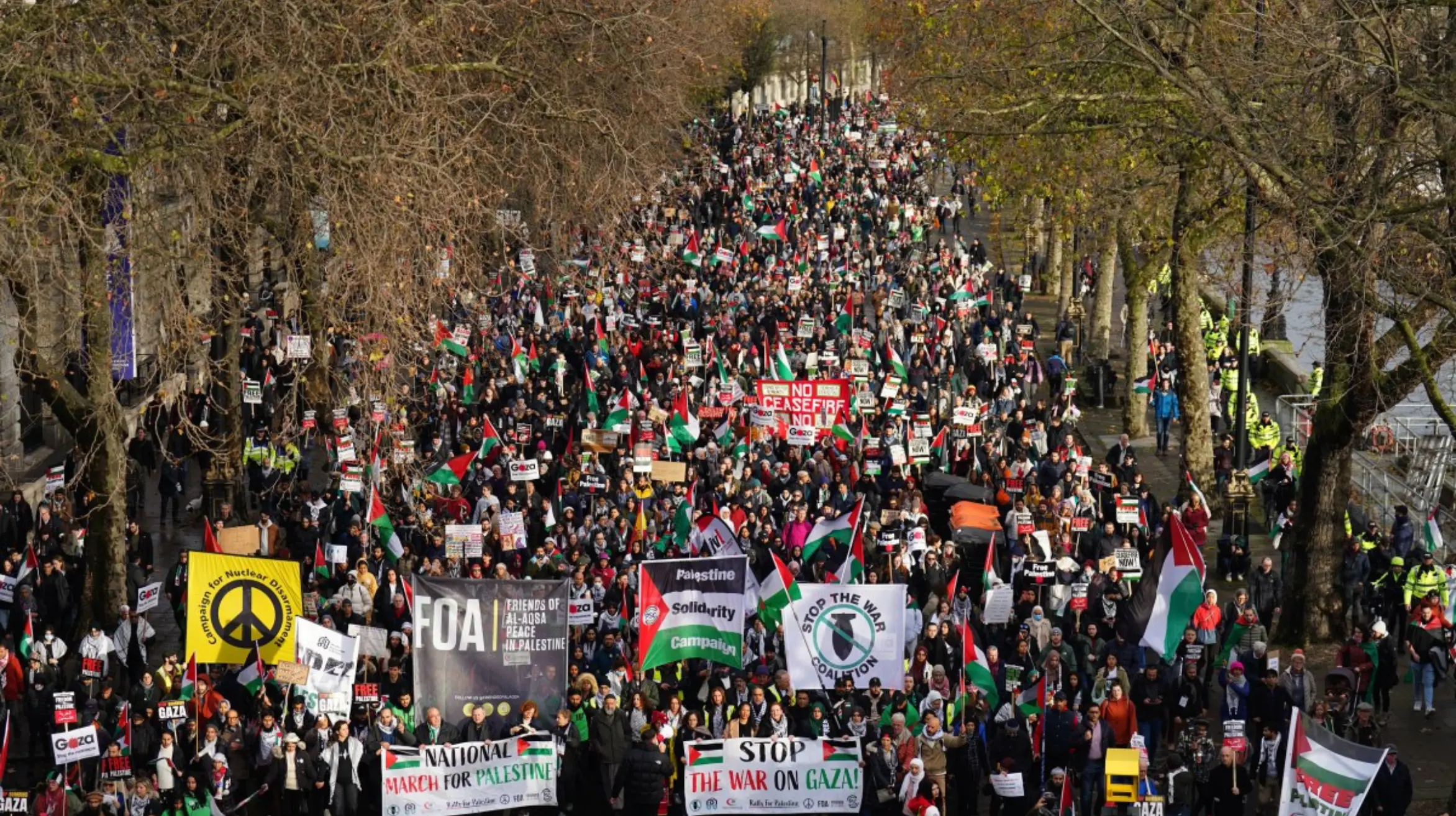London (Parliament News) – Rishi Sunak urges university leaders to prevent Gaza protests from turning violent, emphasizing tolerance and condemning hateful behaviour. The government backs crackdown on antisemitic incidents, promoting safe campus environments.
Sunak advised university chiefs to take personal responsibility for assuring that campus pro-Gaza protests do not turn into hostile or intimidatory clashes. In a No10 meeting with vice-chancellors, the Prime Minister commanded British universities as some of the best in the world and beacons of free speech.
How does Rishi Sunak emphasize campus safety and tolerance?
“They must also be places of tolerance and respect where students of all backgrounds feel safe,” he contended. He stated that given the conflict in the Middle East, the strength of feeling among students and others on the issue was understandable. Mr Sunak added: “That does not leave any site for hateful behaviour, intimidatory behaviour or glorification of terrorism. We can’t pander to protesters making unreasonable demands.”
He declared that university bosses had the Government’s backing to stamp out protests getting out of control. The Prime Minister also emphasised evidence of a rise in antisemitic incidents on university campuses and called for strict disciplinary action for anyone inciting violence.
How are UK universities responding to pro-Gaza protests?
Mr Sunak was at the 90-minute session for around 20 minutes, with Education Secretary Gillian Keegan, Communities Secretary Michael Gove and security minister Tom Tugendhat.
Before it began at around 9 am, Ms Keegan stated that university bosses needed to do more to stop pro-Gaza protests from exploding into violence on campuses as had happened in America.
Some vice-chancellors, she described, were already making sufficient effort but others were struggling to ensure all students were in a safe environment. She informed Times Radio: “Some of the vice-chancellors have taken very clear action, some of them have taken actions that we think are perhaps not the right actions. So, we just want to share that best practice and examine how we can show leadership on this issue.
“We do not like our universities and campuses to be like those that we see on our television screens in other parts of the world, like the US.”
Are university leaders prepared to manage protest escalation?
Vice-chancellors realised that there were some troubling incidents but worried that they were taking the protests seriously. ID checks on some pupils were taking place to stop other people from entering the demonstrations.
University bosses were operating with student unions to try to ensure protests remained peaceful. The arrangement came after pro-Palestine encampments were set up by students at more than a dozen universities across the UK against the fighting in Gaza, including Cambridge, Oxford, Goldsmiths, University of London as well as SOAS in the capital.
But so far the fierce scenes have not spread across the Atlantic from the US. In the Autumn Statement in November, Chancellor Jeremy Hunt revealed that £7 million of extra support would be committed to tackle antisemitism in schools and universities.

